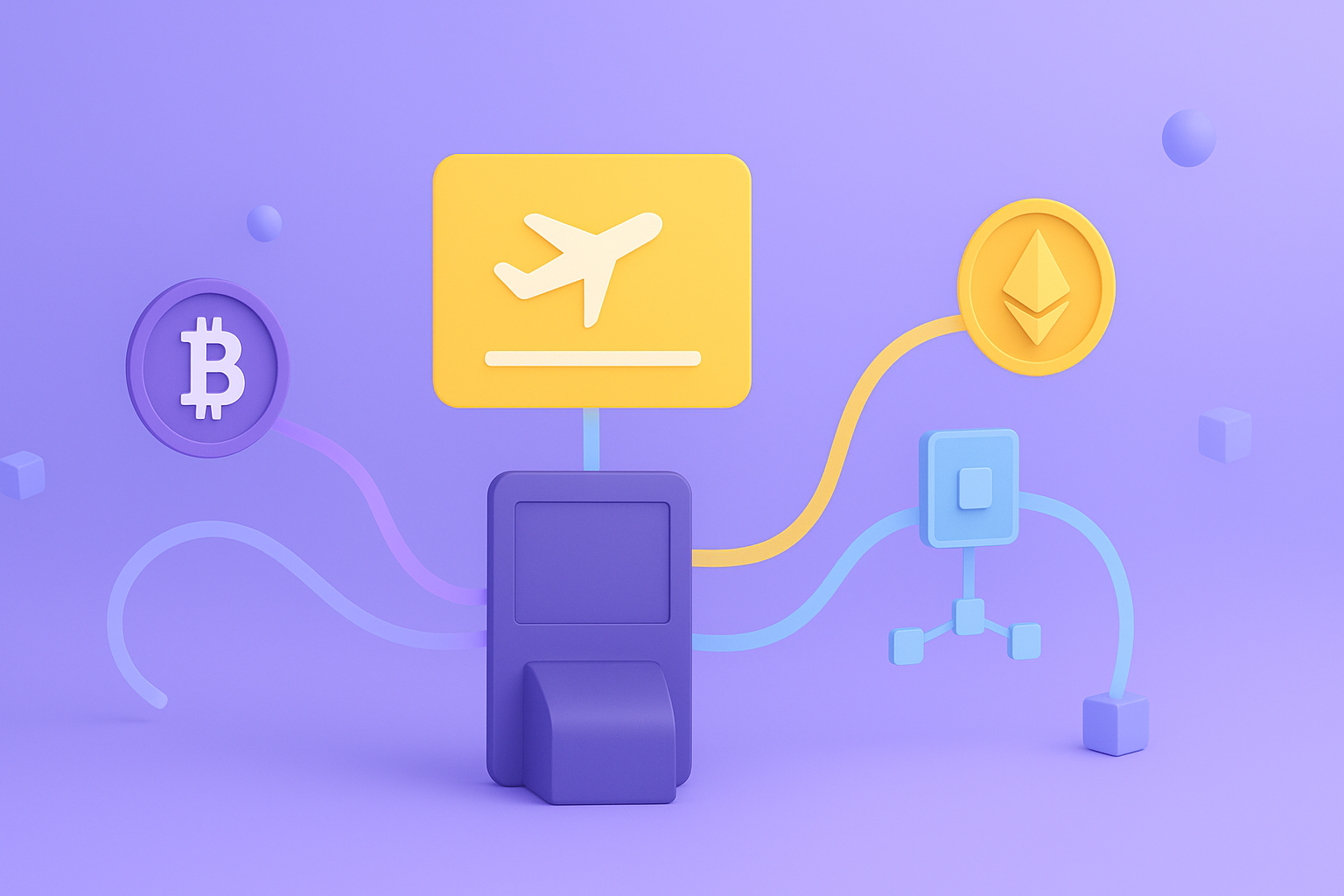The aviation sector is undergoing a gradual transformation with the adoption of cryptocurrencies. Several airlines around the world now offer the option of paying for tickets in Bitcoin, Ethereum, Tether or other digital currencies via specialised platforms such as Alternative Airlines. This trend is part of a drive to modernise the customer experience and attract a younger, tech-savvy clientele.
Key points to remember
- Several major airlines, including Delta, American Airlines, United Airlines, Emirates and Air France, now accept cryptocurrencies for ticket bookings.
- Emirates plans to integrate Crypto.com Pay into its booking system by 2026, targeting tech-savvy customers.
- Dubai is positioning itself as a global hub for digital assets with a favourable regulatory framework and strategic partnerships, such as the one between Crypto.com and the local government.
- The adoption of cryptocurrencies in aviation aims to modernise the customer experience, offer more payment flexibility and attract a new audience.
Major players already on board
- Delta Air Lines: The American airline offers more than 5,400 daily flights to 325 destinations in 52 countries. Thanks to Alternative Airlines, it is possible to pay for all these flights in cryptocurrencies.
- American Airlines: Connecting 350 global destinations, it accepts more than 70 cryptocurrencies via the same platform.
- United Airlines: Serving more than 100 international destinations, it allows tickets to be paid for in Bitcoin, Ethereum, Ripple, Tether and Litecoin.
- Emirates: Headquartered in Dubai and operating more than 3,300 weekly flights, Emirates recently signed a memorandum of understanding with Crypto.com to integrate cryptocurrency payments into its booking system by 2026. This initiative is specifically targeted at users who are adept at using Web3 services and aims to modernise the customer experience.
- Qantas, British Airways, Turkish Airlines, KLM, Air Canada and Air France: All these airlines now offer cryptocurrency payment options through specialised platforms or partnerships with Crypto.com, xMoney, Binance Pay or Coingate.
Dubai, a strategic hub for cryptocurrencies
The choice of Emirates is no coincidence. Dubai and the United Arab Emirates have been positioning themselves for several years as a global hub for digital assets. The creation of the Virtual Assets Regulatory Authority (VARA) and the development of free zones such as the Dubai Multi Commodities Centre (DMCC) are fostering a dynamic crypto ecosystem, integrating both local and international companies.
In May 2025, Crypto.com signed a strategic partnership with the Dubai government to enable cryptocurrency payments for certain taxes and public services. The alliance with Emirates is therefore in line with this strategy, which aims to expand the everyday use of crypto in real transactions.
Towards the gradual adoption of cryptocurrencies in travel
The integration of cryptocurrencies into the airline industry serves several purposes:
- Payment flexibility: offering customers alternatives to traditional bank cards.
- Modernising the user experience: attracting a connected, tech-savvy customer base.
- Strengthening strategic position: Dubai and airlines that adopt cryptocurrency are positioning themselves as innovative leaders in the international market.
Other companies are following suit. For example, Air Arabia accepts AE Coin, a stablecoin backed by the UAE dirham, while Corsair became the first French airline to offer cryptocurrency payments for its tickets at the end of 2024.
Cryptocurrencies and flight bookings: the future of travel
The adoption of cryptocurrencies in the airline industry marks a significant evolution in the travel experience. It is no longer limited to a simple alternative means of payment: it represents a real lever for modernising services, building loyalty among tech-savvy customers and strengthening the strategic position of airlines in a rapidly changing international market.
Emirates, through its partnership with Crypto.com, illustrates this dynamic by planning to fully integrate cryptocurrency payments by 2026, paving the way for a new era of more flexible and secure ticket booking. Other airlines, such as Air Arabia, Corsair, Delta and Air France, are following suit, reflecting a growing interest in digital solutions for travel.
At the same time, the United Arab Emirates, and Dubai in particular, are confirming their role as a strategic hub for financial innovation and the adoption of digital assets. With a favourable regulatory framework and an expanding crypto ecosystem, the region is attracting more and more players and travellers willing to experiment with digital currencies in their daily lives.
In short, blockchain and cryptocurrencies are no longer just abstract concepts for technology enthusiasts: they are becoming a concrete and practical part of the travel experience, promising to redefine the way we book and pay for flights globally.









